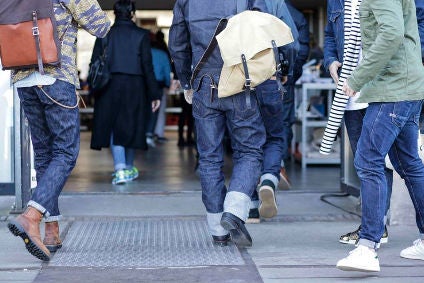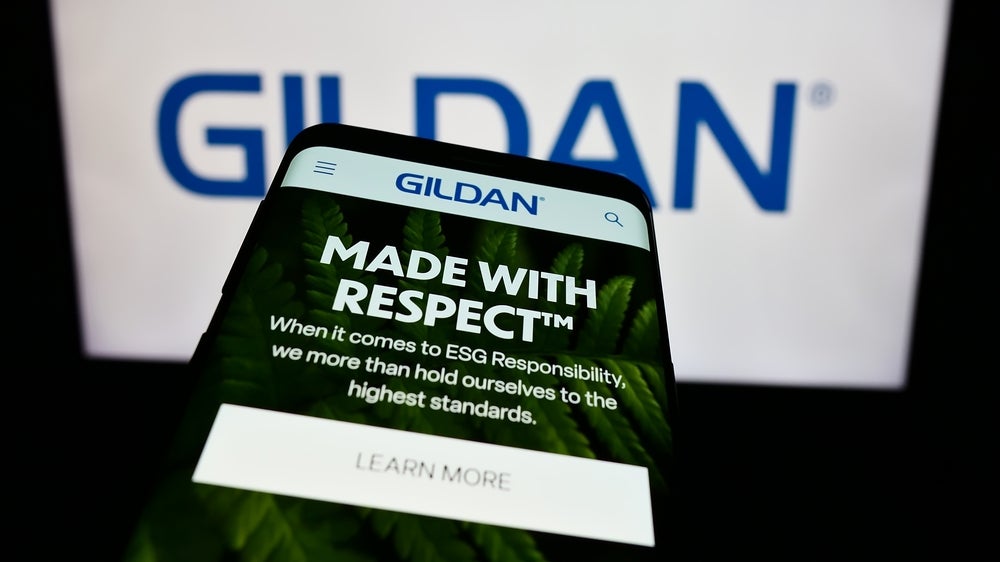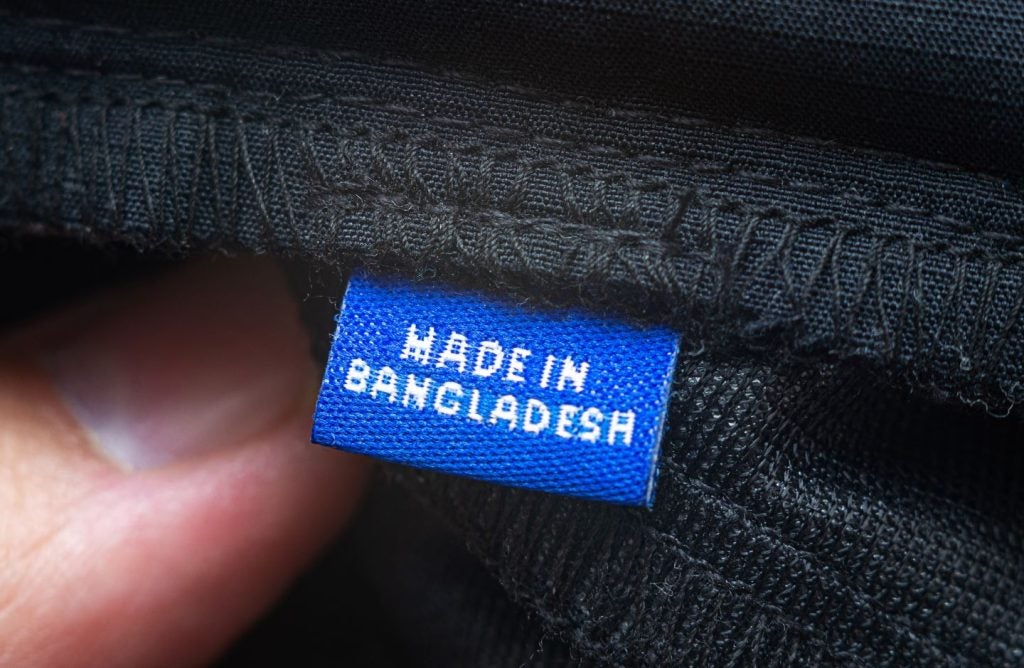
In an effort to compete against athleisure, jeans manufacturers are innovating and adapting to evolving consumer needs. Lorna Hennelly, beauty and fashion analyst at market research provider Euromonitor International, takes a closer look.
As consumers are becoming more concerned with health and exercise, and both professional and social dress codes are relaxing, they have begun to incorporate sportswear into their daily outfit decisions. With the global rise of athleisure and consumers becoming increasingly health-conscious, jeans suffered a market share loss to sportswear over the past five years, growing at a slower CAGR of 0.2% versus 4%, respectively.
In an effort to compete against athleisure, jeans manufacturers are innovating and adapting to evolving consumer needs. The impact of athleisure on denim has given rise to fabric innovation and a move towards more sustainable production processes.
Growing consumer demand for comfort has prompted brands to explore fibre technology. Euromonitor International’s Global Consumer Survey found that when shopping for apparel and personal accessories, over 41% of consumers would be willing to pay more for comfort, more than any other product attribute.
Fibres such as elastane, spandex and lyocell are increasingly making their way into denim, allowing jeans to retain their shape and fit over time and appealing to rising expectations for both comfort and style. Crucially, these innovative fibres are low cost, therefore they present a great opportunity for a wide range of brands, regardless of market position.
As brands begin to incorporate the comfort of athleisure into their denim, the jeans market is predicted to continue growing at a faster CAGR of 1.9% from 2017-2022, mainly driven by standard and economy jeans brands such as Levi’s, Wrangler, Zara, Gap and Primark, accounting for 70% of total value sales at a global level.
How well do you really know your competitors?
Access the most comprehensive Company Profiles on the market, powered by GlobalData. Save hours of research. Gain competitive edge.

Thank you!
Your download email will arrive shortly
Not ready to buy yet? Download a free sample
We are confident about the unique quality of our Company Profiles. However, we want you to make the most beneficial decision for your business, so we offer a free sample that you can download by submitting the below form
By GlobalData
Source: Euromonitor International Global Consumer Trends Survey 2017
More recently, the athleisure trend in its purest form has begun maturing in the US and Western Europe, and consumer demand for leggings is slowing, giving rise to a rebound in rigid, retro-style denim.
The resurgence in demand is driven by millennials and grows in line with the industry-wide revival of 90s style fashion and nostalgic Americana, after over a decade of ultra-stretch skinny jeans saturating the market. Super premium brands helping to drive the denim revival include Vetements, Calvin Klein, Off-White and Balenciaga.
While womenswear demand for rigid denim is rising steadily, Levi Strauss has reiterated that stretch-denim skinny jeans are still the best-selling style for the brand and continue to account for a large volume of the jeans market.
Therefore, despite the revival of authentic, rigid denim, it appears that the influence of athleisure on denim is enduring and skinny jeans may be here to stay.
Consumers are not only shopping with the latest fashion trends in mind. According to Euromonitor International’s Global Consumer Trends Survey, consumers are increasingly making ethically conscious purchasing decisions and becoming more concerned about climate change and their impact on the planet.
One of the key future challenges for brands will be to engage in more sustainable and fair practices while maximising efficiency and minimising costs. Millennials and Generation Z consumers in particular are pushing for industry transformation and brands are taking note.
Levi Strauss recently announced its move to replace almost all of its staff carrying out labour intensive and toxic finishing work with an army of lasers by 2020. It solidifies Levi’s reputation as a market leader in denim and puts pressure on competitors to invest in innovation in order to remain relevant.
As an increasing number of brands strive to harness technology to make their production processes more sustainable, those that fail to appeal to the modern conscious consumer will be at a competitive disadvantage.
Looking to the future, jeans companies must leverage product innovation in order to regain market share and attract consumers accustomed to the comfort of sportswear.
Manufacturing processes must become more sustainable while at the same time product offerings must keep up pace with rapidly evolving trends in both technology and fashion.
Click on the following link to access the full report: ‘Spotlight on Jeans: Denim Bounces Back‘







